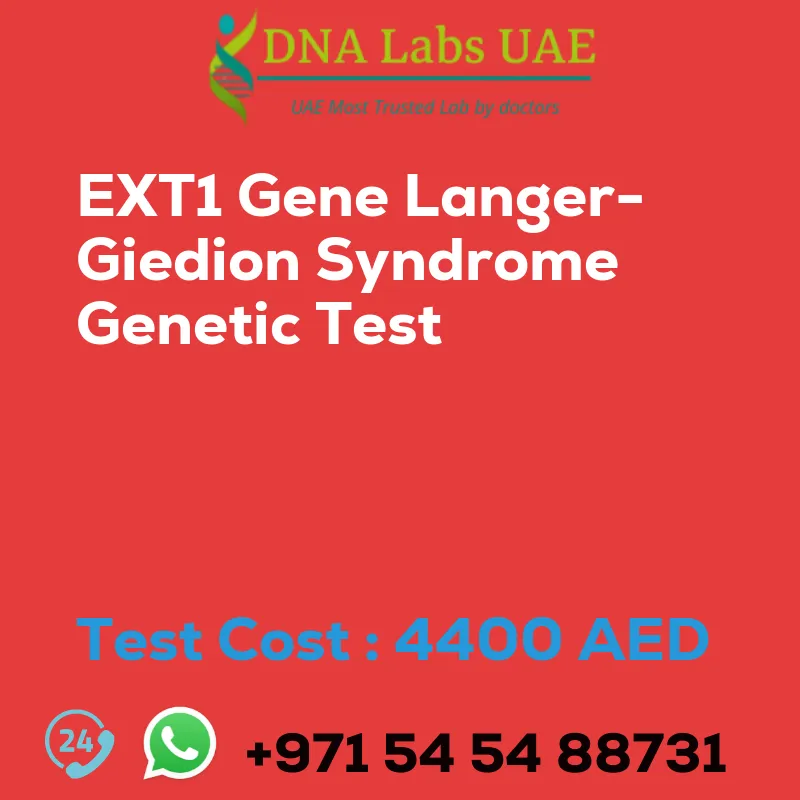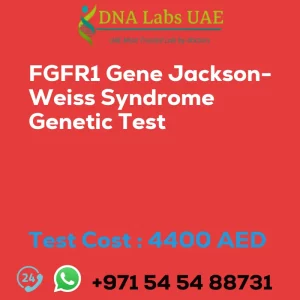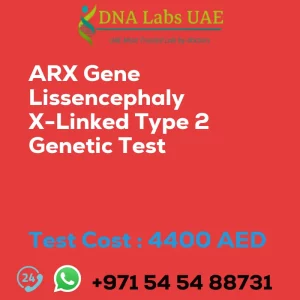EXT1 Gene Langer-Giedion syndrome Genetic Test
Components: Blood or Extracted DNA or One drop Blood on FTA Card
Price: 4400.0 AED
Report Delivery: 3 to 4 Weeks
Method: NGS Technology
Test Type: Dysmorphology
Doctor: Pediatrics
Test Department: Genetics
Pre Test Information: Clinical History of Patient who is going for EXT1 Gene Langer-Giedion syndrome NGS Genetic DNA Test. A Genetic Counselling session to draw a pedigree chart of family members affected with EXT1 Gene Langer-Giedion syndrome NGS Genetic DNA Test gene EXT1
Test Details: Gene Langer-Giedion syndrome (also known as trichorhinophalangeal syndrome type II) is a rare genetic disorder characterized by multiple skeletal abnormalities, distinctive facial features, and intellectual disability. It is caused by mutations in the EXT1 gene, which is involved in the synthesis of heparan sulfate, a component of the extracellular matrix. NGS (Next-Generation Sequencing) is a high-throughput DNA sequencing technology that allows for the simultaneous sequencing of multiple genes or even entire genomes. In the context of Langer-Giedion syndrome, NGS can be used as a genetic test to identify mutations in the EXT1 gene.
The NGS genetic test for Langer-Giedion syndrome involves obtaining a DNA sample, typically through a blood sample or cheek swab, from the individual suspected of having the disorder. The DNA is then sequenced using NGS technology to identify any mutations or variants in the EXT1 gene. The results of the test can help confirm a diagnosis of Langer-Giedion syndrome and provide information about the specific mutation(s) present in the EXT1 gene.
NGS genetic testing for Langer-Giedion syndrome can be performed in specialized genetic testing laboratories. The results of the test can be used for diagnostic purposes, genetic counseling, and potentially for guiding treatment decisions in the future. It is important to note that genetic testing should be done under the guidance of a healthcare professional or genetic counselor, who can provide appropriate pre- and post-test counseling and help interpret the results.
| Test Name | EXT1 Gene Langer-Giedion syndrome Genetic Test |
|---|---|
| Components | |
| Price | 4400.0 AED |
| Sample Condition | Blood or Extracted DNA or One drop Blood on FTA Card |
| Report Delivery | 3 to 4 Weeks |
| Method | NGS Technology |
| Test type | Dysmorphology |
| Doctor | Pediatrics |
| Test Department: | Genetics |
| Pre Test Information | Clinical History of Patient who is going for EXT1 Gene Langer-Giedion syndrome NGS Genetic DNA Test. A Genetic Counselling session to draw a pedigree chart of family members affected with EXT1 Gene Langer-Giedion syndrome NGS Genetic DNA Test gene EXT1 |
| Test Details |
Gene Langer-Giedion syndrome (also known as trichorhinophalangeal syndrome type II) is a rare genetic disorder characterized by multiple skeletal abnormalities, distinctive facial features, and intellectual disability. It is caused by mutations in the EXT1 gene, which is involved in the synthesis of heparan sulfate, a component of the extracellular matrix. NGS (Next-Generation Sequencing) is a high-throughput DNA sequencing technology that allows for the simultaneous sequencing of multiple genes or even entire genomes. In the context of Langer-Giedion syndrome, NGS can be used as a genetic test to identify mutations in the EXT1 gene. The NGS genetic test for Langer-Giedion syndrome involves obtaining a DNA sample, typically through a blood sample or cheek swab, from the individual suspected of having the disorder. The DNA is then sequenced using NGS technology to identify any mutations or variants in the EXT1 gene. The results of the test can help confirm a diagnosis of Langer-Giedion syndrome and provide information about the specific mutation(s) present in the EXT1 gene. NGS genetic testing for Langer-Giedion syndrome can be performed in specialized genetic testing laboratories. The results of the test can be used for diagnostic purposes, genetic counseling, and potentially for guiding treatment decisions in the future. It is important to note that genetic testing should be done under the guidance of a healthcare professional or genetic counselor, who can provide appropriate pre- and post-test counseling and help interpret the results. |








